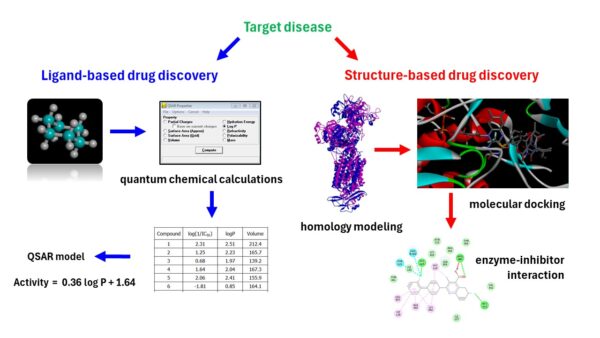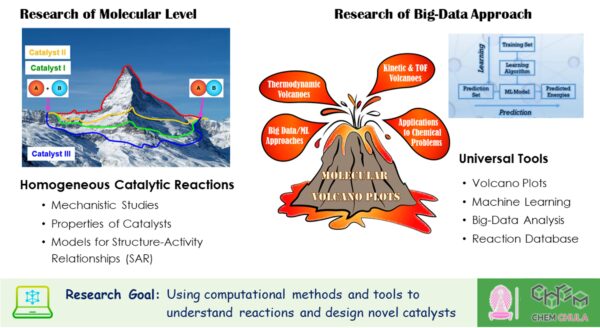Computational Chemistry & Artificial Intelligence
Assoc. Prof. Somsak Pianwanit
Computational Drug Discovery
Various computational drug discovery techniques are systematically employed, leveraging available experimental data to provide valuable insights for drug development across a diverse spectrum of diseases, with a primary emphasis on tropical diseases. For instance, the molecular docking technique facilitates the prediction of enzyme-inhibitor complex structures, while precise exploration of their interactions is achieved through rigorous quantum chemical calculations. Additionally, quantitative structure-activity relationship (QSAR) analysis yields robust mathematical models that predict the activity of novel compounds and offers guidelines for enhancing their efficacy by strategically modifying their chemical structures.

Keywords: QSAR, molecular docking, virtual screening, homology modeling, quantum chemical calculation
Dr. Boodsarin Sawatlon
Molecular Computational Chemistry and Data-driven Tools for Catalysts/Reactants Prediction
Our research focuses on using quantum computational methods to investigate homogeneous catalytic reactions and applying molecular volcano plots to estimate catalyst performance. Additionally, we leverage big-data analysis and machine learning techniques to uncover trends and relationships between chemical space and activity. While mechanistic studies provide molecular-level insights and big-data approaches analyze broader patterns, both aim to understand how and why reaction efficiency changes under varying conditions. These findings enable the prediction of reaction behaviors without laboratory experiments and guide the development of new catalysts and the optimization of reaction conditions.

Keywords: Reaction mechanism, catalysis, data-analysis, volcano plots, homogeneous reaction


